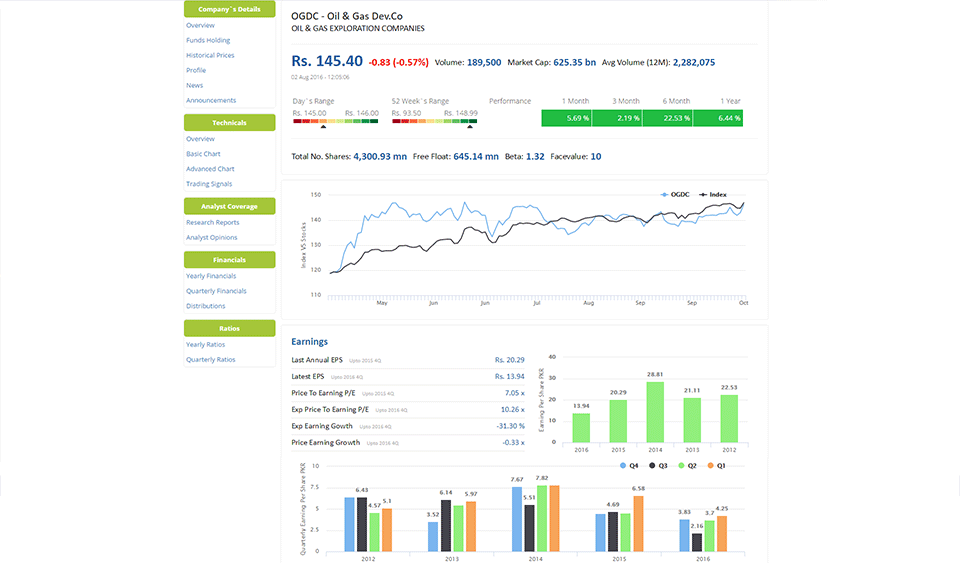Investing in the stock market is one of the most common means of investing all over the world. There is a whole science to it and for someone looking to start investing for the first time, it can be confusing. This article will help introduce you to the technical world of stock investments.
What are stocks and how can you earn from them?
Stocks or shares are units of ownership of a company. Companies issue shares for the money that they raise. People that buy shares become shareholders of a company. Companies that are established, pay their shareholders some portion of their net earnings. This payment is called dividends if it is paid in cash. Sometimes a company pays its shareholders more stock if it doesn’t have the cash to distribute. The additional shares are called bonus shares.
Types of Shares
Shares can be preferred or common, which yields different returns for shareholders. They are traded in the stock market by specialized vendors called stockbrokers or stock traders. Many people invest in stocks by buying companies’ stocks and hope that the company will pay good dividends. People that purchase stocks for an extended period are known as investors. This type of investment is called passive investment.
Most people investing in stocks are passive investors; however, some people buy and sell stocks regularly. These people are known as day traders or active traders.
Active traders trade in stocks over a short term of maybe a day or up to a month, just to capitalize on the share price fluctuation. A basic rule of thumb is to call investors that trade shares at least ten times a month an active trader. These people try to benefit from rising share prices, buying a share as it rises and then selling it as it reaches the expected peak price. These people usually base their decision on information about the share, the company’s anticipated results, or some other information.
For the average person looking to invest in stocks, bear in mind that it is best to keep things simple. If you do not know the stock market, it is best if you dabble in a mix of low cost, indexed funds to get the most out of your investment in the stock market.
How To Trade In The Stock Market?
To start on your investing journey, you must open a brokerage account. This account can be linked to your bank account for fund transfers. The most common way to trade shares in the stock market is by trading through stock exchanges. Stock markets are where buying and selling forces influence the trading price of a stock. Through a stockbroker, you can buy shares from existing investors who wish to sell them and vice versa.
Stock market transactions can be of two types, primary and secondary market transactions.
Primary Market
When a company first releases its stock, it is called an Initial Public Offering, usually called an IPO in short. Since there are regulatory requirements that companies must follow, the IPO must be registered, and the company decides which banks it wants to issue the IPO through.

An IPO specifies a fixed number of shares for a specific price. You must subscribe to the shares through the bank’s IPO offering documents. At times, an IPO can be oversubscribed, which means that more people have subscribed for the IPO than there are shares to be issued. Similarly, an IPO can also be undersubscribed, which means fewer people are looking to buy the stock than there are shares.
In most cases, primary market issues are much lesser in number compared to secondary market trades.
Secondary Market
Stock is traded on stock exchanges in secondary sales. Trading in stocks has to meet specific government regulations. Most of these regulations are in place to protect investors from fraud. Over the long run, stocks usually give better returns on the money you invest in them than other investments.
Brokerage
An investor must trade stocks through brokers or brokerage houses registered with the stock exchange. This does not require the direct involvement of the company. Each stock exchange has a number of brokers and brokerage houses registered. Registered Brokers/brokerage houses are allowed to engage in the execution of trade on others’ behalf as per the laws, rules and regulations. The following points are of key importance if you are opting for trade.
- For protection against fraud and misrepresentation, an investor should trade only through registered brokers/brokerage houses and agents.
- Make sure that the brokerage house, broker or agent you pick is authentic. You can check their registration on the SECP’s uploaded list of registered Stock Exchanges brokers and agents on its website. Remember that the registration of all the brokerage houses/brokers and agents are valid for a period of one year. this registration is renewed annually.
- If you find an unregistered broker or agent, report them immediately to the SECP as it is in the general interest of other investors.
- The list of registered brokerage houses/brokers and agents can also be found on the respective websites of the Exchanges.
Trading Platform
When assessing a brokerage house or agent to invest in the Stock market, make sure to see how you like their trading platform. An online trading platform helps its users to assess the market through pricing charts and indicators that track stock prices and behaviours. A comprehensive trading platform that is easy to use and understand is essential to place orders on the stock exchange.
Research

Availability of research into industries, sectors and market behavior can be helpful in making informed and sensible decisions about shares in your portfolio. Having market information is important to successful stock trading. Having informed market research and other information is useful.
Steps to open a brokerage account
You need the following to open a brokerage account:
- CNIC
- A Pakistani bank account.
- Salary slip; if you are self-employed, provide a bank statement. This helps in having swift credit history checks.
- You must research which brokerage will work for you and then visit them physically once.
- Once you finish all the paperwork and admit all the documents, you will have to wait for 1-2 weeks.
- After the verification and account processing is done, you will be granted access to trade with stock exchange issued stocks.
Once the account opening formality is completed you will not need to visit your brokerage firm as the majority of dealings and trades will be handled online on the platform.
Benefits of Investing in Stocks
At times, the stock market over or underprices shares based on market and industry trends. Similarly, the stock market undervalues shares based on negative news and events. These events and news could be directly related to the company or could impact it indirectly by being connected to the industry that the company works in.

This can be confusing for investors as while the company’s financials and valuation are the same, the market price is affected by different news or events. An example would be shares prices falling after a poor World Cup performance. Unrelated and related events can influence prices for the short term but this is not relevant for passive investing we discussed above.
In spite of the challenges, investing in shares has some benefits to offer:
1. Capital Gain
A strong fluctuation in stock prices can give you a better gain from your investment than a simple long term investment. As stock prices change every day, this makes stocks a sound long-term investment.
2. Dividends
Established and well-performing companies in the shareholder market offer dividends and bonus shares to their shareholders at the end of each financial year. This allows for capital appreciation if you continue to reinvest the dividends you receive. The more shares you own, the more profit you will earn at the end of each financial year.
3. Liquidity
Investing in shares is a liquid investment. Most shares can be easily bought and sold on any working day on the stock market
How to Trade in Stocks
The underlying concept behind investing is simple, you know the price of something and the predictions or forecasts for the price. Ideally when it’s available for a lower price in the market, you buy it. This is kind of like buying a product on sale. It’s the same product, but you buy it for less. This means that you save money while investing in something worthwhile
Bear in mind that it is better to see the financial analysis on the company’s financials, keep an eye on its dividend payouts, revenue, cash flows, events related to the industry, its brand target market, and its competitive edge. This is where your broker’s research should be useful.
The more information you have, the more reliable your buying decision is going to be. The process of analyzing a company’s financials as well as non-financial components is known as intrinsic analysis.
Since such analysis involves multiple factors, many investors make mistakes in their stock valuation.
Why All Investors Should Be Careful of Stock Prices
As an investor, you should realize that the stock market is complex and unpredictable for even the most seasoned investors. If the market is rising, it is time for any investor to sell off their short-term holdings and gain based on the rising market.
Most newbies and even some seasoned investors get excited by rising trends and buy specific stocks rising daily. Investors’ buying interests usually drive such rises, and there is no guarantee of how long such rising trends, known as rallies, would continue.
When you go to a mall, you don’t walk into a store and buy just anything. You usually have a list or know what you want to buy and which shops to go into to browse. The same should hold for investing in the stock market.
You should have a list of sectors, stocks, and performance history to know which stock performance and valuation fits into your investment preference or risk appetite. Ideally, you should also know which stock should be bought at which price range and sold off at what level.
Some basic rules to follow before you start investing in a new stock are:
- Always research the company you are planning to invest in. What is their business, and which products do they sell? Do the products have a steady demand? Is the competition strong? Does the company have the muscle and capacity to supply the product?
- How long has the company been in business? Does it have a good stock performance record?
- Does it have sound Corporate Governance policies?
The stock market is all about news and perceptions. It is fueled and runs on the information. But should you invest in shares based on the news? A hot tip from a dealer or your broker should be taken with some healthy scepticism.
A golden rule is to buy on the rumour and sell on the news. Institutional investors would already be aware of the rumours, and jumping onto the buying bandwagon will only reduce your margins if there are any left. For instance, if market rumours claim that a company is due to get a big contract, its share price would start rising and would cross its intrinsic and fundamental valuation.
People begin to buy based on the rising trend, and the price would increase further. Once the rumour is proven to be false, everyone who bought during the rise would stand to lose money. However, if you had already purchased before the rumours and sold during the rise, then you stand to gain from your investment.
Buying based on rumours and news means that the stock price has already risen to accommodate the rumour prices and would be priced higher than its actual prices. You need to bear in mind that the stock market is fluid; it cannot remain high or low for an indefinite period. You have to follow market prices and pick up stocks when they are at low points.

Sadia Zaheer holds a Masters in Business Administration from IBA, Karachi. After working in several financial institutions in Client Management, Corporate Lending, Islamic Banking and Product Management she jumped careers to pursue a career in writing.
She is a Finance, Business and HR Development writer with four years of experience. She reads a lot and takes care of her multiple cats to remain calm.



